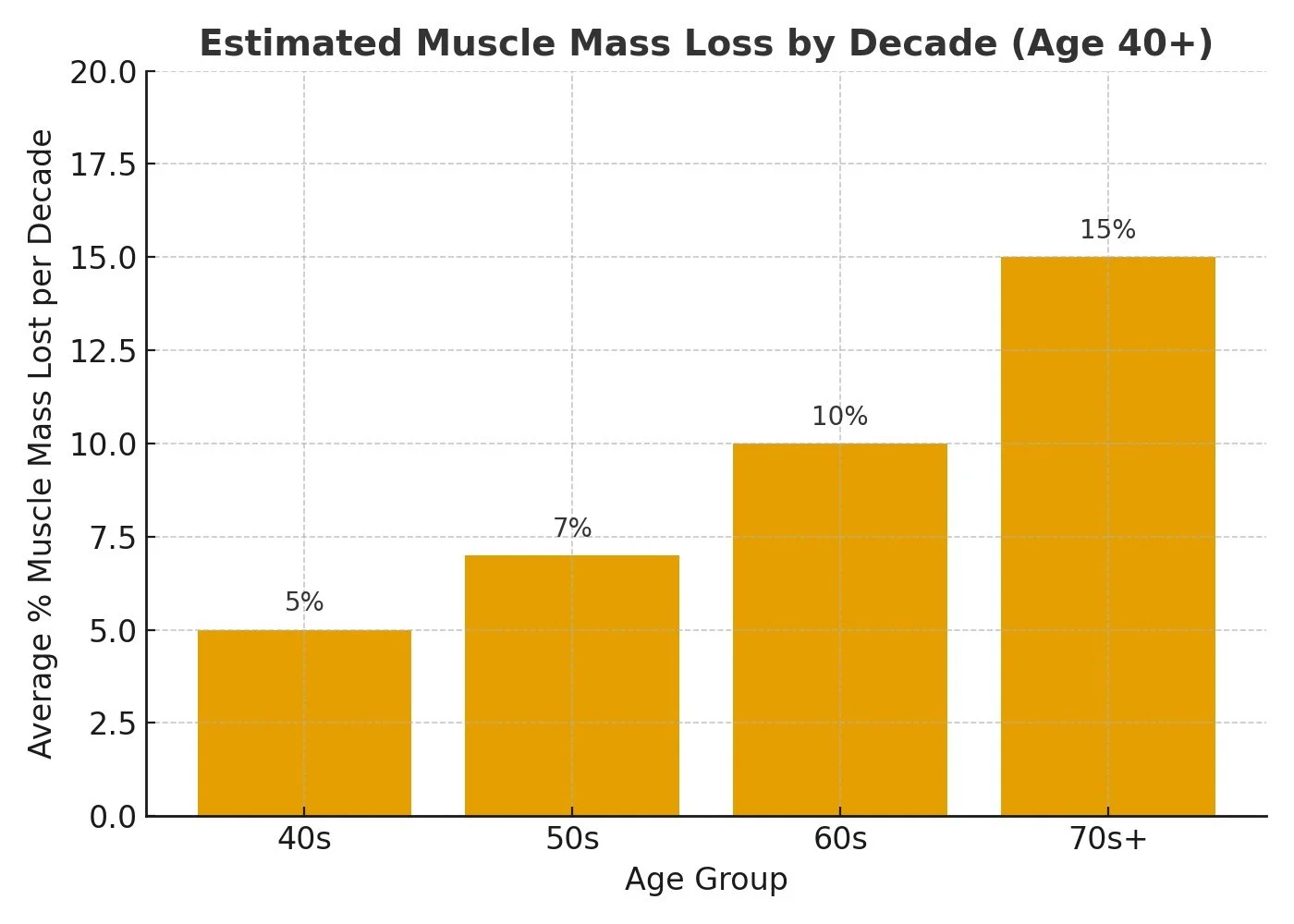Why I Started Taking Creatine After 50 (and Why You Might Consider It Too)
If you had told me a few years ago that I’d be taking creatine, I probably would’ve begged to differ. My uninformed opinion of it was that of something only for guys lifting heavy weights proclaiming, “WE PUMP YOU UP”.
But as a woman in my 50s, and post-menopausal, I’ve learned that creatine isn’t just for Arnold…it’s for us, as well. And honestly? It’s been a welcomed addition to my routine.
What Creatine Actually Is
Creatine is a natural compound that your body makes, and you also get a small amounts from foods like red meat and fish. The main job of this compound is to help your muscles produce quick energy.
When you supplement with creatine, you’re basically topping off your “energy tank.” The result? You can push harder in workouts, recover faster, and even feel sharper mentally (Mayo Clinic).
Why Women Over 50 Should Care
Helps Protect Muscle
After menopause, estrogen levels drop, and from that, our muscle mass tends to decline more quickly. Studies show that in general muscle mass starts to decline in everyone’s 40’s and progresses each decade. By our 70’s muscle mass lose is around 15%! Creatine, especially when combined with resistance training, can help preserve muscle and even supports new gains (Forbes et al., 2022).
Supports Bone Health
Muscle and bone health has been proven to be inextricably linked. Some research suggests creatine paired with strength training can improve bone density. That’s a big deal when you think about osteoporosis risk after menopause (Candow et al., 2014).
Boosts Energy & Brain Function
This one really was the deciding reason that I started including creatine in my shakes each morning. It also supports brain health, helping with mental fatigue, focus, and even memory (Rawson & Venezia, 2011).
Aids Recovery
One welcomed difference I’ve noticed is less soreness after workouts. I have found that I bounce back faster and don’t feel wiped out for a prolonged period. Research backs this up creatine reduces exercise-induced muscle damage and supports recovery (Cooper et al., 2012).
Myths I Had to Unlearn
“Creatine makes you bloated.” — Nope, not true. It pulls water into your muscles, and actually makes them look fuller and firmer, not puffy.
“It’s unsafe for women.” — Creatine is one of the most researched supplements out there. There are decades of studies showing it’s safe for healthy adults (Mayo Clinic).
“It’s only for athletes.” — I’m not training for the next Olympics…I just working to stay strong, healthy and stay off of the “high-risk falls” list!
How I Take It (and What’s Up With “Loading Phase”?)
The most common way women (and men) use creatine is simple:
Daily dose: 3-5 grams per day of creatine monohydrate. No frills, just consistency.
You may have heard about something called the loading phase. This is when you take a higher amount, such as around 20 grams per day (split into 4 doses) for 5-7 days. This is meant to assist in saturating your muscles faster. After that, you switch to the regular 3-5 grams a day.
The loading phase is optional. You’ll get to the same place with daily use…it just takes a few weeks longer. Personally, I skipped loading and went straight to 3-5 grams per day. Slow and steady was my course, and worked fine for me.
Final Thoughts
I have found creatine to be one of those small daily habits that rewarded a big payoff. It’s a part of my recipe to stay strong, protect my bones, and keep my energy up on the daily. It has helped me feel more capable not just in work-outs, but in everyday life.
If you’ve been wondering what’s real deal with creatine, consider this a sign to take a closer look! It’s not just for men. It’s for women like us who want to feel strong, confident, and healthy well into our 50s and beyond!
References
Forbes SC, Candow DG, Ostojic SM, Roberts MD, Chilibeck PD. (2022). Creatine supplementation in women’s health: a lifespan perspective. Nutrients.
Candow DG, Chilibeck PD, et al. (2014). Effect of creatine supplementation and resistance training on bone health. J Nutr Health Aging.
Rawson ES, Venezia AC. (2011). Use of creatine in the elderly and evidence for effects on cognitive function in young and old. Amino Acids.
Cooper R, Naclerio F, Allgrove J, Jimenez A. (2012). Creatine supplementation with specific view to exercise/sports performance. J Int Soc Sports Nutr.
Mayo Clinic. Creatine.

